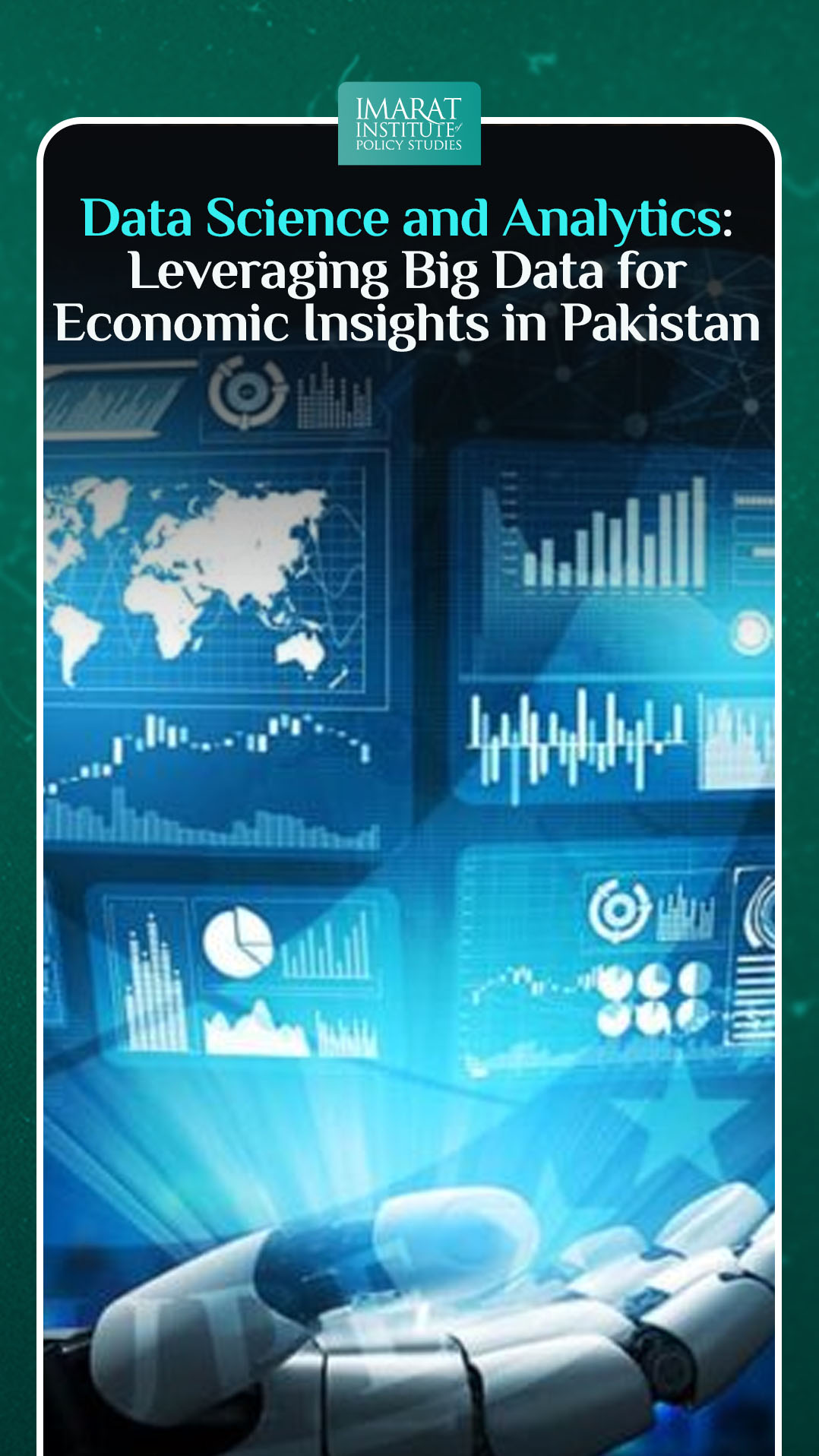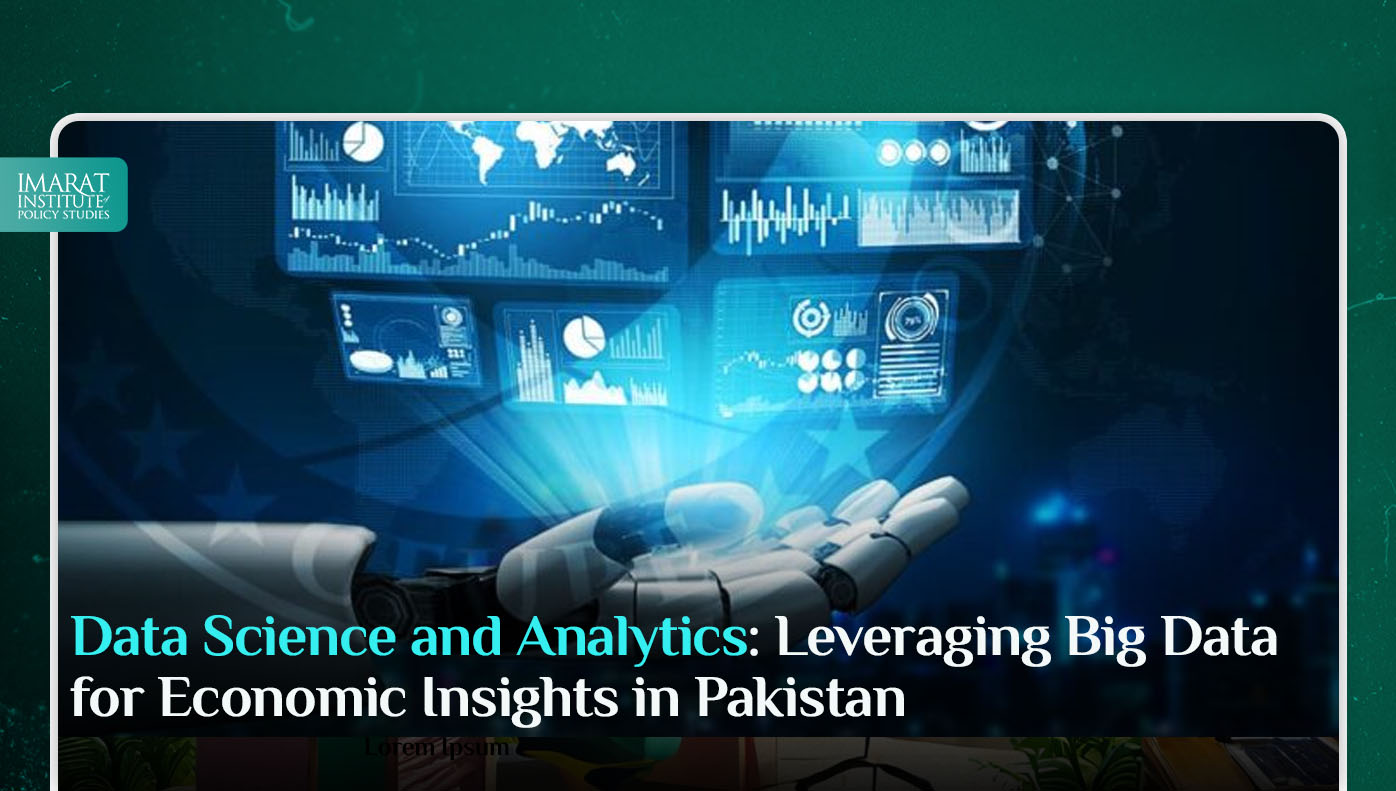In the digital age, data has become a cornerstone of economic progress, and Pakistan is no exception. With the rapid growth of digital technologies and the internet, the country is witnessing a data revolution that holds immense potential for driving economic insights and innovation. This blog delves into the multifaceted landscape of data science and analytics in Pakistan, exploring its applications, impact, challenges, and opportunities for economic development.
The Rise of Big Data in Pakistan
Pakistan has embarked on a transformative journey into the realm of big data analytics, a trajectory closely aligned with global trends spurred by the exponential growth of digital information. This surge in data sources, ranging from the vast pool of online transactions and social media interactions to the intricate data streams generated by IoT devices, has ushered in an unprecedented influx of data across the country. This diverse and extensive dataset presents a spectrum of opportunities and challenges for various stakeholders, including businesses, governments, and researchers alike. Businesses stand to gain profound insights into consumer behavior, market trends, and operational efficiencies through the analysis of this wealth of data. Similarly, governments have a unique opportunity to leverage data analytics for evidence-based policy formulation, resource allocation, and public service optimization. Moreover, researchers can delve into vast datasets to uncover patterns, correlations, and predictive models that drive innovation and progress in diverse fields.
However, alongside these opportunities, the surge in big data presents unique challenges for Pakistan, such as the need for robust infrastructure, advanced analytical tools, and skilled professionals to manage and analyze large volumes of data effectively. Additionally, ensuring data privacy, security, and ethical use are paramount concerns in the digital age. Furthermore, bridging the digital divide and ensuring equitable access to data and analytics capabilities pose significant challenges, particularly in rural and underserved areas. Nonetheless, Pakistan’s embrace of big data analytics signifies a paradigm shift in its approach to information management and decision-making. By investing in digital infrastructure, fostering a culture of data-driven innovation, and nurturing a skilled workforce in data science and analytics, Pakistan can unlock the full potential of big data to drive economic growth, social development, and technological innovation. As the country continues its journey into the era of big data, collaboration, investment, and strategic planning will be essential to navigate the complexities and seize the opportunities presented by this data-driven revolution.
Applications of Data Science in Economic Insights
The application of data science in economic analysis is multifaceted, encompassing a wide range of areas such as macroeconomic forecasting, market analysis, and policy formulation. Through sophisticated data modeling techniques and machine learning algorithms, economists can extract actionable insights from large datasets, shedding light on complex economic phenomena and guiding policy interventions. Moreover, data-driven economic models play a crucial role in predicting future trends, assessing risks, and optimizing resource allocation in a dynamic economic landscape.
Impact on Business and Industry
In Pakistan, businesses across various sectors are harnessing the power of big data analytics to drive growth, innovation, and competitive advantage. From retail and finance to healthcare and agriculture, organizations are leveraging data analytics to gain deeper customer insights, streamline operations, and develop personalized products and services. Furthermore, predictive analytics and data-driven decision-making are empowering businesses to anticipate market trends, mitigate risks, and capitalize on emerging opportunities in a rapidly evolving market environment.
Driving Innovation and Entrepreneurship
The intersection of data science and entrepreneurship is fueling a wave of innovation in Pakistan’s startup ecosystem. Entrepreneurs are leveraging big data analytics to develop cutting-edge solutions to address societal challenges and market needs. For instance, healthcare startups are leveraging predictive analytics to improve patient outcomes and optimize healthcare delivery, while agritech startups are using data analytics to enhance agricultural productivity and empower farmers with actionable insights. By harnessing the power of data-driven innovation, these startups are driving positive social impact and contributing to economic growth and development.
Challenges and Opportunities Ahead
Despite the promising prospects of big data analytics, Pakistan faces several challenges on its path to realizing its full potential. These challenges include data privacy concerns, data quality issues, and a shortage of skilled professionals in data science and analytics. Additionally, inadequate digital infrastructure and regulatory barriers pose significant hurdles to the widespread adoption of data-driven practices. However, these challenges also present opportunities for collaboration, investment, and capacity building to strengthen Pakistan’s data ecosystem and unlock the transformative power of big data.
Conclusion
In conclusion, the strategic utilization of big data analytics has the potential to revolutionize economic analysis, drive innovation, and catalyze sustainable development in Pakistan. By embracing data-driven decision-making, fostering a culture of innovation, and addressing key challenges, Pakistan can harness the full potential of big data to drive economic growth, enhance competitiveness, and improve the quality of life for its citizens. As the country continues its journey into the digital age, the integration of data science and analytics will play a pivotal role in shaping its future trajectory and unlocking new opportunities for prosperity and progress.
This article is written by Radma Nouman. Radma is a research analyst at the Iqbal Institute of Policy Studies (IIPS).



Leave a Reply